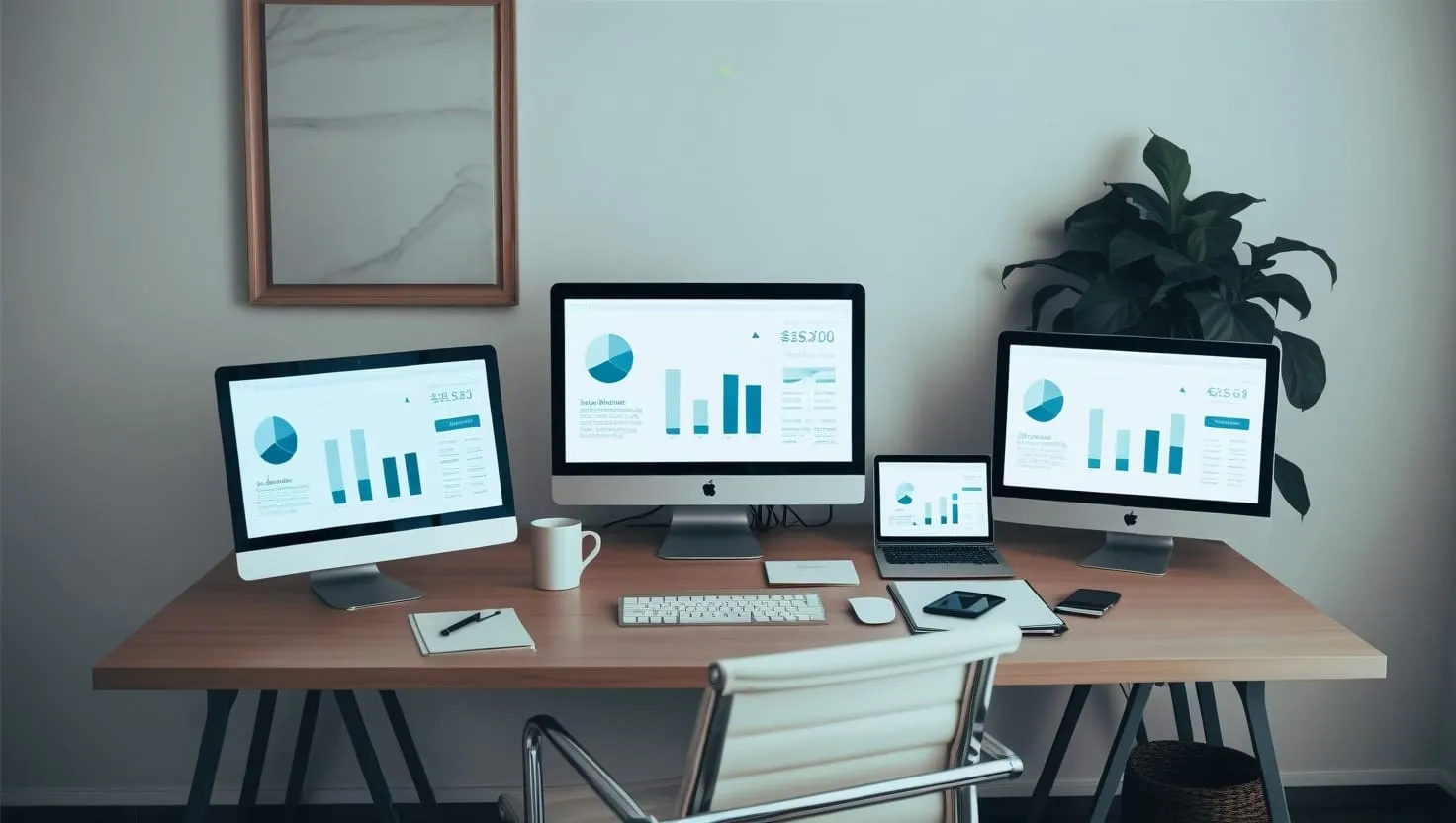In the modern digital age, the lines between our physical and virtual environments have blurred significantly. For finance professionals like Priya, who spend most of their time working remotely, the digital workspace has become an integral part of their daily lives. However, few of us stop to consider how our digital environments might be influencing our financial decision-making and overall productivity.
Priya's journey began with a simple realization: her cluttered digital desktop was reflecting the chaos in her financial life. She had multiple tabs open, disorganized folders, and a sea of icons that seemed to stare back at her, each demanding attention. This digital clutter was not just visually overwhelming; it was also affecting her mental clarity and focus.
To address this, Priya turned to an ancient practice that has been adapted for the modern world: Digital Feng Shui. This concept involves applying the principles of traditional Feng Shui, which aims to balance and harmonize the energies in a given space, to our digital environments. For Priya, this meant starting with the basics – organizing her desktop.
She began by categorizing her files and folders into clear, labeled sections. This simple act of organization helped her locate documents quickly and reduced the time spent searching for them. But more importantly, it created a sense of order and control, reflecting positively on her financial management.
Next, Priya focused on the color schemes of her financial apps. Colors, in Feng Shui, are associated with different elements and energies. For instance, green is often linked to growth and prosperity, while red is associated with energy and vitality. By choosing apps with calming and growth-oriented color schemes, Priya found that her spending habits became more mindful. She was less inclined to make impulsive purchases when the visual cues around her promoted stability and growth.
The arrangement of icons on her desktop was another area of focus. In traditional Feng Shui, the placement of objects can significantly impact the flow of energy, or "Chi," in a space. Similarly, in her digital workspace, Priya arranged her icons in a way that guided her attention towards budgeting and financial planning tools. This intentional placement helped her stay focused on her financial goals and avoid distractions.
Virtual backgrounds in video calls were another aspect Priya explored. While often overlooked, these backgrounds can subtly influence the tone and outcome of financial discussions. For instance, a cluttered or chaotic background can give the impression of disorganization, while a clean and professional background can convey stability and reliability. By choosing backgrounds that reflected her professional and organized approach to finance, Priya found that her clients and colleagues responded more positively to her financial advice.
The psychology behind these digital spaces is fascinating. Our brains are wired to respond to visual cues, and these responses can affect our behavior and decision-making. For example, studies have shown that people are more likely to trust and follow advice from someone who appears organized and professional. By ensuring her digital environment reflected these qualities, Priya was able to build stronger relationships with her clients and enhance her credibility as a financial analyst.
One of the most intriguing aspects of Digital Feng Shui is the concept of a "digital money corner." In traditional Feng Shui, the money corner is a specific area of the home or office that is optimized to attract wealth and prosperity. In the digital realm, this can be translated into a dedicated section of your workspace where you manage your finances. For Priya, this meant creating a folder labeled "Financial Hub" where she kept all her financial tools, documents, and apps. This centralization made it easier for her to monitor her finances and make informed decisions.
As Priya continued to optimize her digital workspace, she noticed a significant improvement in her productivity and financial clarity. She was able to manage her time more efficiently, avoid digital clutter, and maintain a positive money mindset. This transformation was not just about organizing her digital space; it was about creating an environment that supported her financial well-being.
For those looking to apply these principles to their own digital workspaces, here are some practical tips:
- Organize Your Desktop: Keep your files and folders organized. Use clear labels and categorize them in a way that makes sense for your work.
- Choose Calming Color Schemes: Opt for apps and tools with color schemes that promote stability and growth.
- Arrange Icons Intentionally: Place your icons in a way that guides your attention towards important tasks and tools.
- Select Professional Virtual Backgrounds: Ensure your video call backgrounds reflect your professionalism and organization.
- Create a Digital Money Corner: Designate a specific area of your digital workspace for managing your finances.
By applying these principles, you can create a harmonious digital environment that enhances your financial clarity, reduces digital clutter, and promotes a positive money mindset. In a world where our digital and physical lives are increasingly intertwined, optimizing our virtual workspaces is no longer just a nicety; it's a necessity for achieving fiscal success.
In conclusion, Priya's journey highlights the profound impact that our digital environments can have on our financial lives. By taking a mindful approach to our virtual workspaces and applying the principles of Digital Feng Shui, we can create environments that support our productivity, clarity, and overall financial well-being. As we continue to navigate the complexities of the digital age, it's time to recognize the power of our virtual surroundings and harness them to achieve greater financial success.






